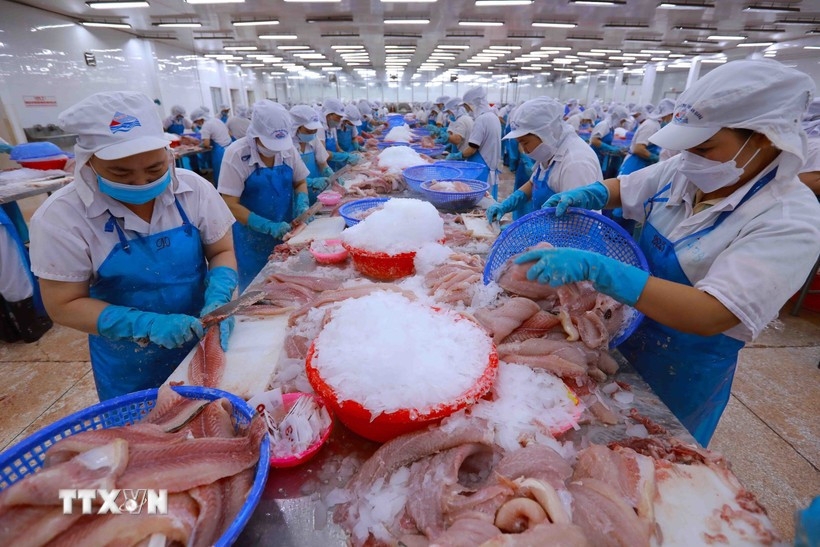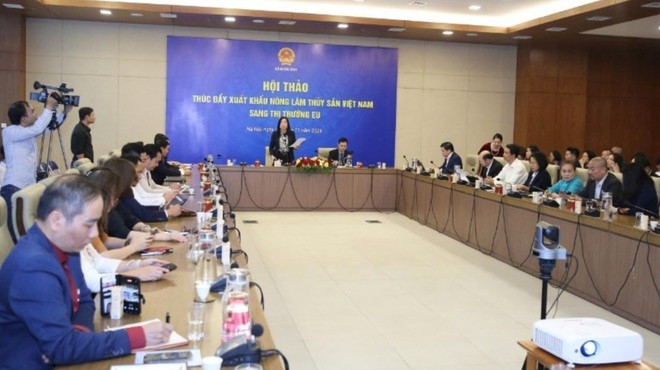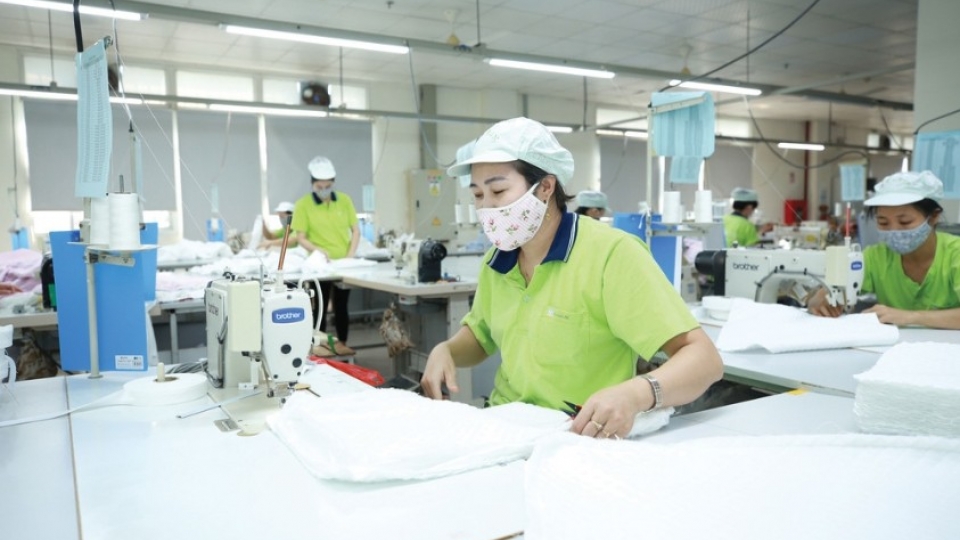Workshop seeks to boost agro-forestry-aquatic exports to EU
Participants in a workshop held on November 13 agreed on the need for Vietnamese firms to shift from selling raw commodities to higher-value goods and from a volume-driven approach to a focus on sustainable quality when it comes to exports to the EU.

The event, organised by the Ministry of Foreign Affairs (MoFA), drew more than 200 participants both in person and online.
Deputy Foreign Minister Le Thi Thu Hang said that strong political and diplomatic ties, together with the EU – Vietnam Free Trade Agreement (EVFTA), provide crucial stepping stones for Vietnam to tap into the EU market, particularly amid intensifying global trade competition. The EU is the world’s third-largest market for agro-forestry-aquatic products, yet Vietnam’s share remains modest at around 3%, despite the country's position as one of the world’s leading exporters of coffee, cashew nuts, pepper, rice, fisheries products, and tropical fruits.
She called on participants to discuss concrete measures to increase exports to the EU in a stable and sustainable manner, especially as the bloc is tightening rules on green standards, environmental protection, and the prevention of illegal, unreported and unregulated (IUU) fishing.
Representatives of local authorities, associations, and enterprises underlined the importance of complying with the EU’s strict standards, stepping up national branding, developing green and clean products aligned with European consumer preferences and, particularly, embedding cultural value and compelling Vietnamese stories in each product.
They noted that although the EU market holds significant potential, many Vietnamese firms still lack the capacity to meet its technical, environmental, and sustainability requirements, and that brand recognition for Vietnamese goods remains limited.

Nguyen Quynh Thien, Vice Chairman of the Vinh Long provincial People’s Committee, stressed that businesses must accelerate green transition and adapt to EU sustainability norms.
Le Duc Tien, Vice Chairman of the Quang Tri provincial People’s Committee, urged ministries and agencies to provide clearer guidance to help firms comply with EU rules. Meanwhile, Dao Van Cuong, Vice Chairman of the Thanh Hoa provincial People’s Committee, highlighted the need to tailor products to local tastes.
The Vietnam Association of Seafood Exporters and Producers (VASEP) raised concerns about challenges from the EU’s "yellow card" imposed on Vietnam’s seafood exports, expressing the hope for EU support in technology and technical expertise to strengthen sustainable fisheries management.
Mai Hai Lam, Chairman of the “We Love Pho” network and a Vietnamese entrepreneur in Poland, emphasised the necessity of linking products with strong national branding and cultural storytelling, and proposed cooperation with embassies and businesses to organise “Pho weeks” across Europe.
Vietnam’s overseas missions assessed Europe as a market with strong and stable purchasing power, as well as a clear preference for organic goods that match Vietnam’s strengths. However, they cautioned that Vietnam faces growing competition from other exporters in similar sectors and must innovate in marketing and trade promotion.
Ambassador Nguyen Van Thao, head of Vietnam’s Mission to Belgium and the EU, said the EU’s high standards pose challenges but also offer opportunities for Vietnamese products to improve to meet international benchmarks.
Deputy Minister Hang affirmed that the MoFA will continue to support localities, associations, and businesses in gaining more effective access to the EU market and will maintain dialogue with relevant EU authorities to remove obstacles and maximise opportunities under the EVFTA.
The official instructed Vietnam’s overseas missions to support businesses by providing timely information on EU regulations and market demand, expanding product promotion through diverse and creative activities, enhancing coordination among missions across Europe, and leveraging overseas Vietnamese networks and distribution channels. She also called for stronger cooperation in technical assistance and green transition to help the agro-forestry-aquatic sector meet green and sustainable standards.



